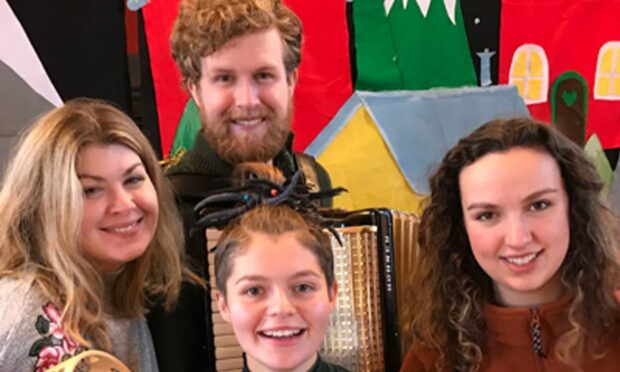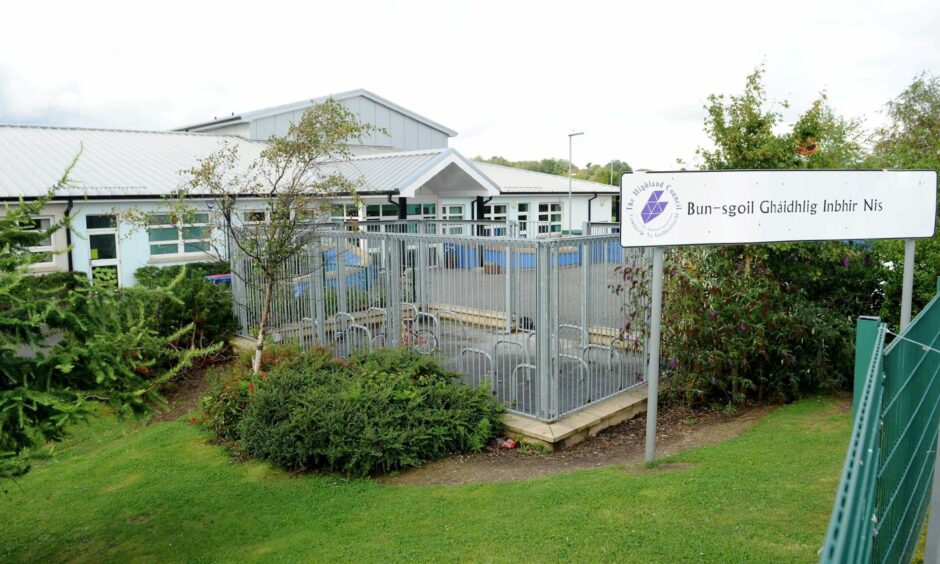A Gaelic touring pantomime is set to return to schools in the Highlands next week, with a story inspired by Pinocchio to celebrate Scotland’s Year of Stories 2022.
With funding from Bòrd na Gàidhlig and Creative Scotland, Fèisean nan Gàidheal’s drama officer, Angus Macleod, has written and directed Fiodhògaidhio agus an Fharpais-chiùil.
The pantomime, which returns for the first time since 2019, tells the story of Arturo and his struggling musical instruments shop, which he fears he might have to give up.
His latest musical invention, Fiodhògaidhio, has given him hope for a brighter future, but his dream for his creation soon turns his whole world upside down.
More than 1,000 school pupils to enjoy performance nationwide
The annual pantomime is produced through Fèisean nan Gàidheal’s education service, Fèisgoil and will be taken on the road this year by a four-strong band of actors: Rachel Kennedy, Claire Frances MacNeil, Fergus Munro and Evie Waddell respectively.
More than 1,000 Gaelic medium pupils are set to enjoy the performance across Scotland, which starts on December 5.
Schools across the Highlands and Islands that the show will be performed in are:
Argyll and Bute
- Rockfield Primary School, Oban
Highland
- Acharacle Primary School
- Bun-sgoil Ghàidhlig Inbhir Nis, Inverness
- Bun-sgoil Ghàidhlig Loch Abar, Fort William
- Bun-sgoil Ghàidhlig Phort Rìgh, Portree
- Craighill Primary School, Tain
- Dingwall Primary School
- Mallaig Primary School
- Sleat Primary School
A filmed public performance, which will be open to the general public, will take place at Inverness Royal Academy on Thursday, December 8 at 7pm.
The film will be shared among Gaelic medium schools as a festive resource in the run-up to the Christmas holidays.
‘Opportunities for young people to hear Gaelic in informal settings’
Bòrd na Gàidhlig‘s chief executive officer, Shona MacLennan said: “We are delighted to support this important project again. It contributes to the aims of the National Gaelic Language Plan to normalise Gaelic and also contributes to wellbeing.
“It creates important opportunities for young people to hear Gaelic in informal settings out with the classroom, as well as demonstrating an example of the rich talent we have in our Gaelic artists.
“We are sure that these events will be enjoyed by everyone, particularly with the opportunity for children to take part in a face-to-face event.”


Conversation